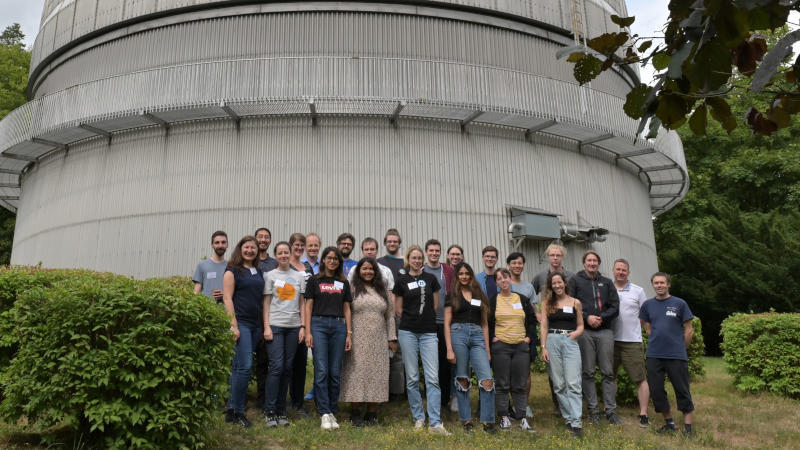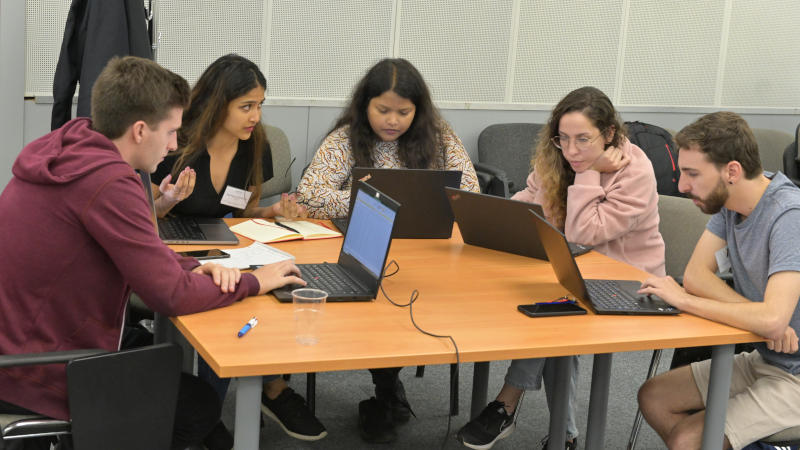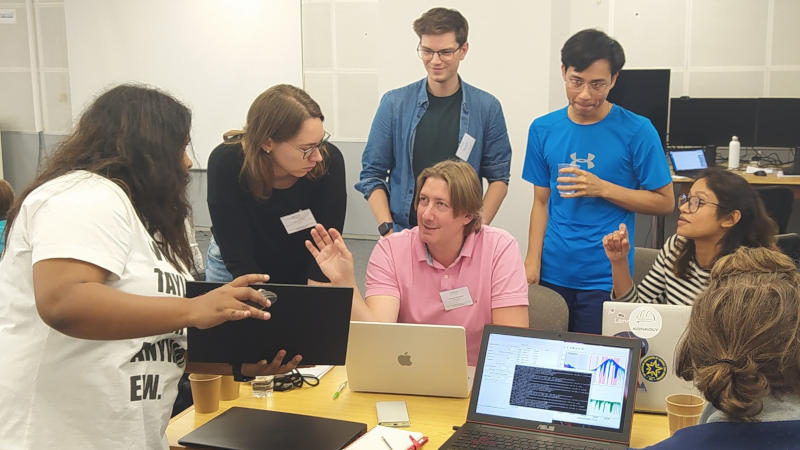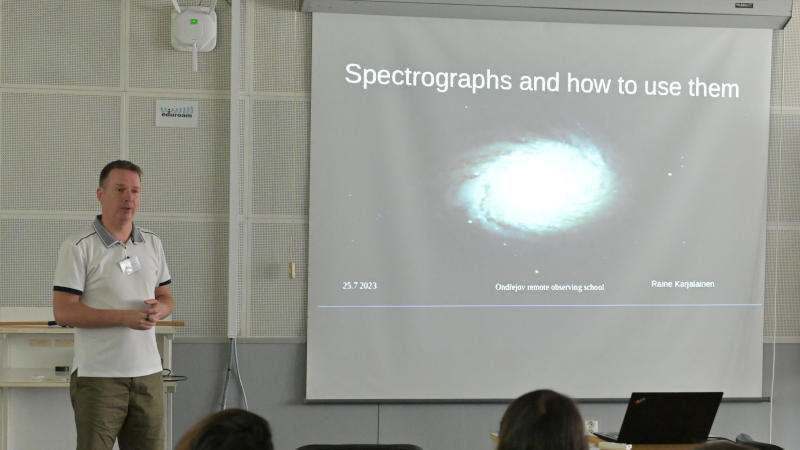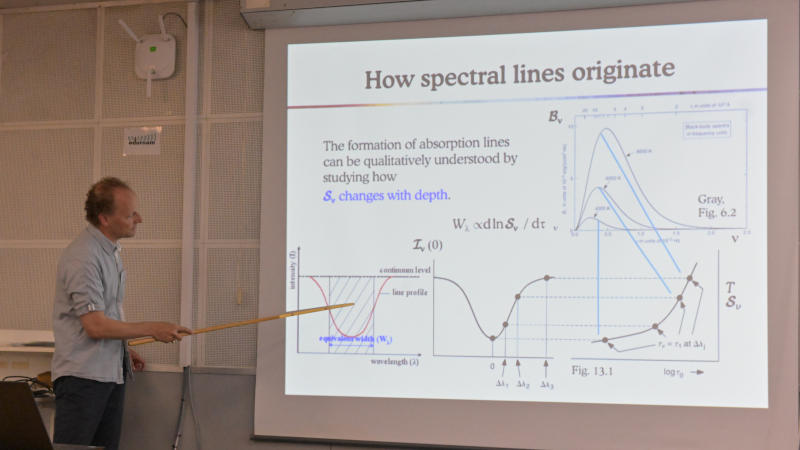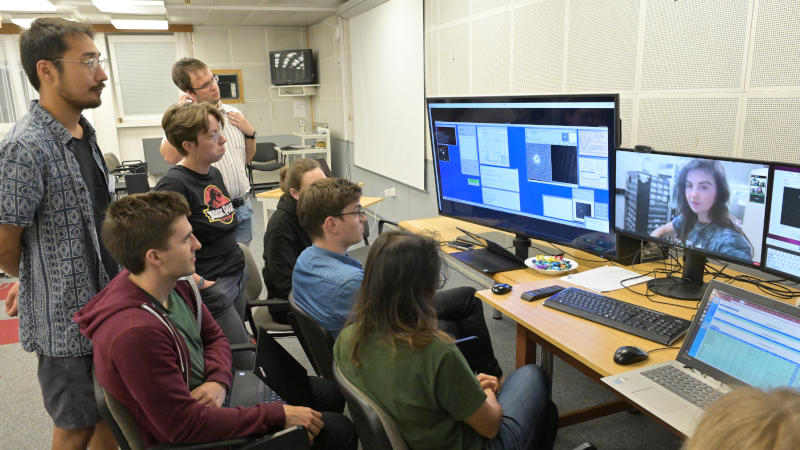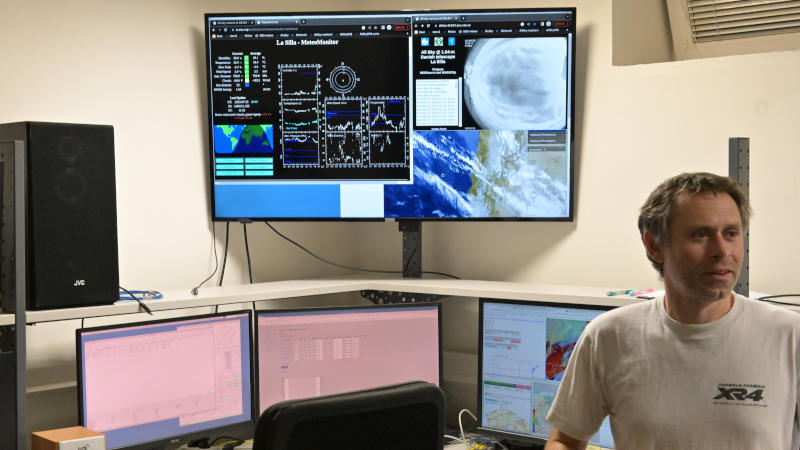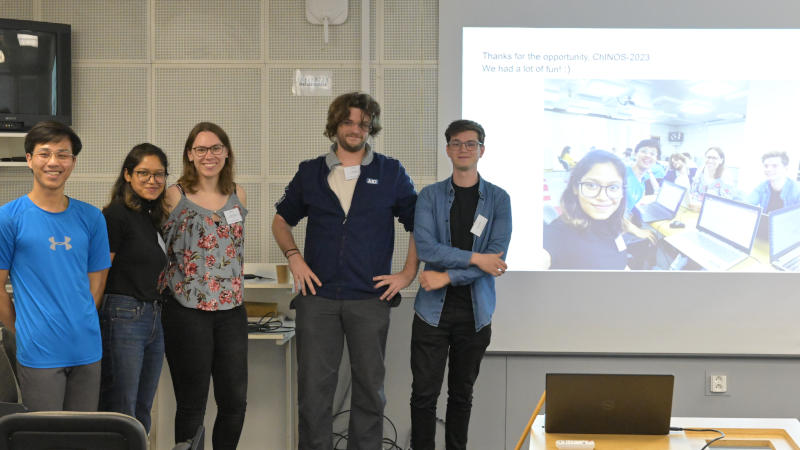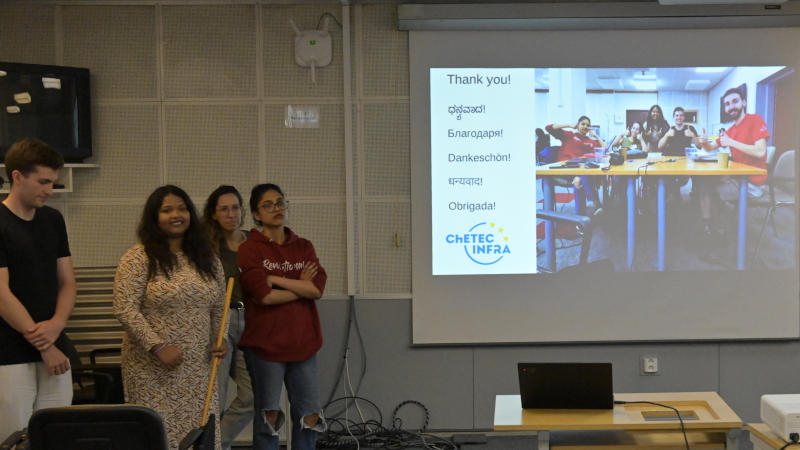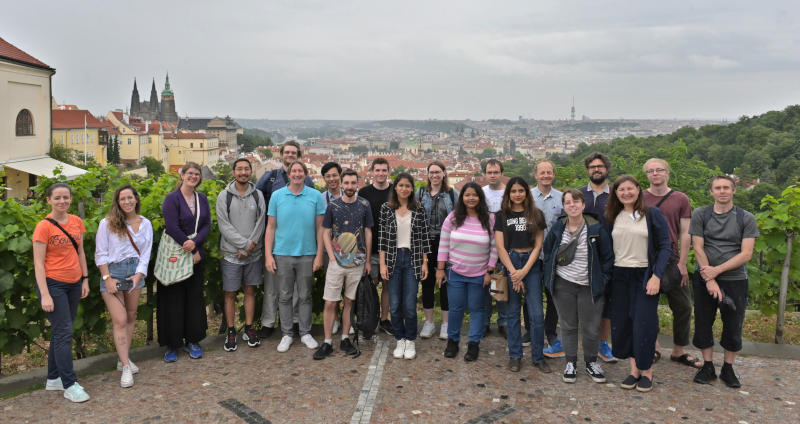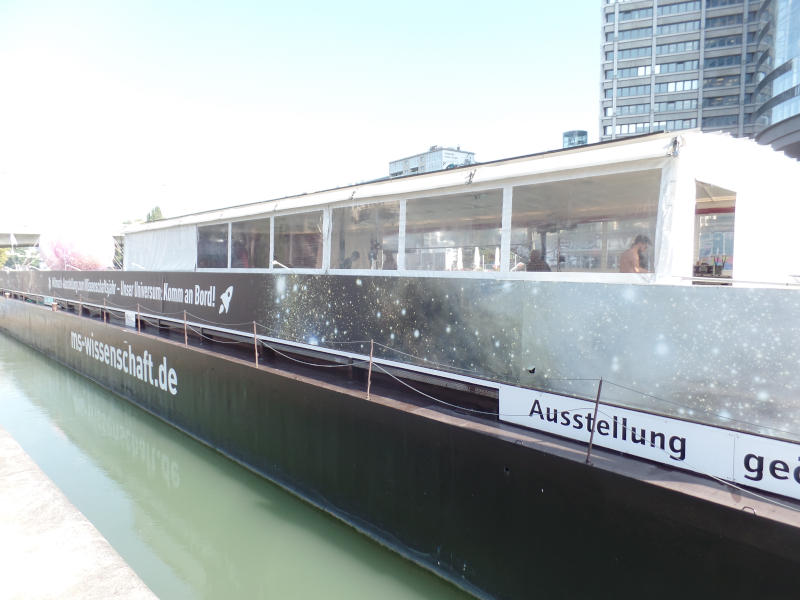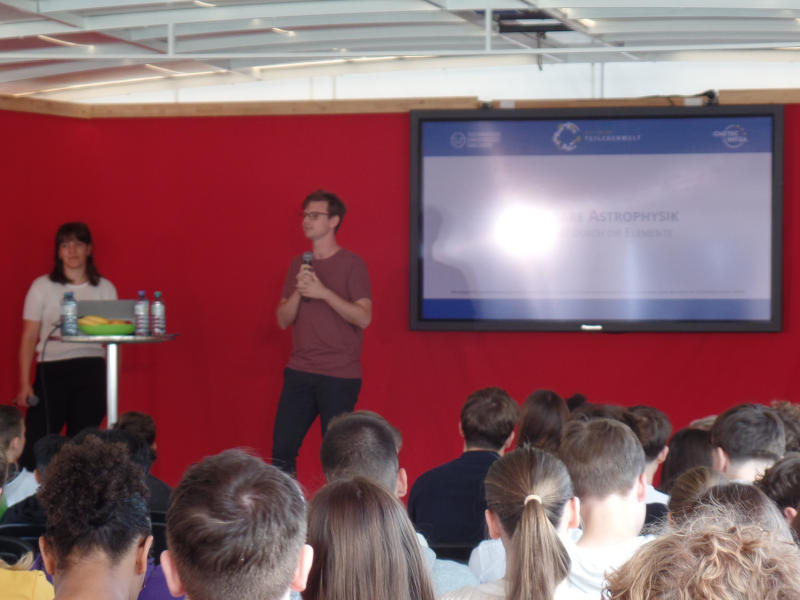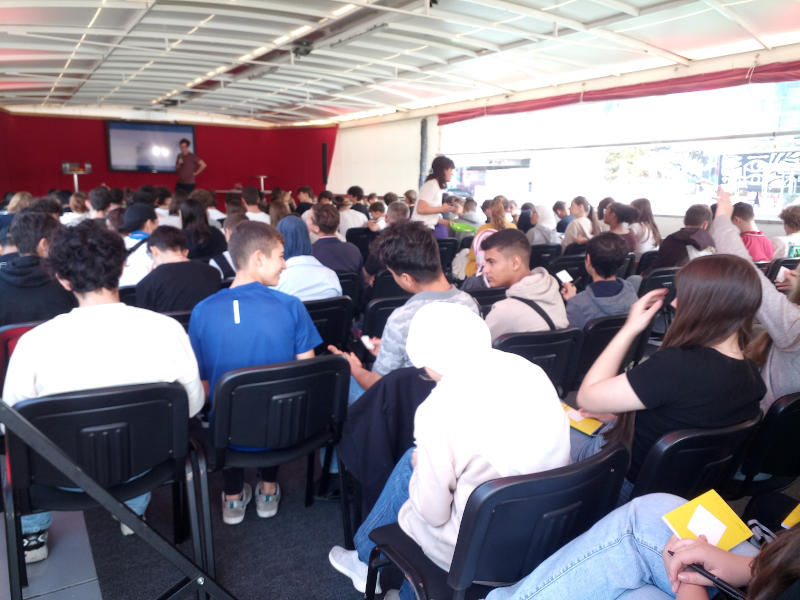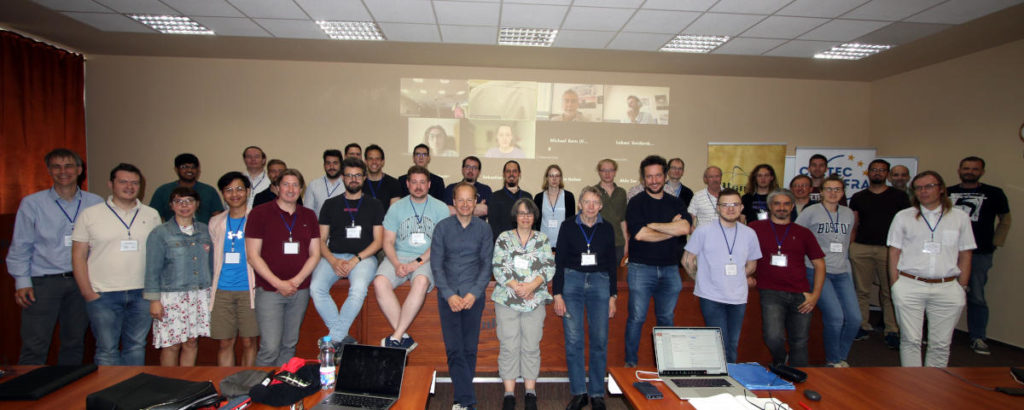The Carpathian Summer School of Physics (CSSP), is a traditional scientific event, with wide international participation, organized by the Institute of Nuclear Physics and Engineering for over 50 years. The 2023 edition of the school, held from July 2 to 15, marked the 30th edition of the school in Sinaia, Romania. The subject of the school followed the title “Exotic nuclei and nuclear and particle astrophysics (IX). Physics with small accelerators” for the 9th time since its foundation in 2005, organized by a team of Romanian and American researchers.
CSSP is part of several European networks and projects, including ENNAS (European Network of Nuclear Astrophysics School), ChETEC-INFRA, and EURO-LABs.
The conference participants, researchers, teachers and students from 4 continents, discussed and debated the latest news in scientific fields that seek to understand and explain the entire Universe starting from observations, experiments and theories from terrestrial laboratories: energy sources and the formation of chemical elements in the Universe in past, current and future processes, the structure of radioactive nuclei far from the stability line, the inventory and sources of cosmic radiation, as well as the use of knowledge and nuclear installations in applications. Both methods, experiments, and large nuclear physics installations in the world will be presented.
A total number of 65 participants attended 50 hours of lectures. With a focus on students and young researchers in the addressed fields, a number of early career lecturers were selected, and 12 communications where presented by students.
CSSP23 placed great emphasis on the direct interaction between generations of researchers, and young scientists in their training. A designated as Outreach Day consisted of a session with lessons aimed at a wider audience, and a round table discussion with the theme “Science in times of crisis”. Besides the school participants, MCID officials, politicians, and media, participated.
The current organizers express their hope that the CSSP tradition will last for decades to come
